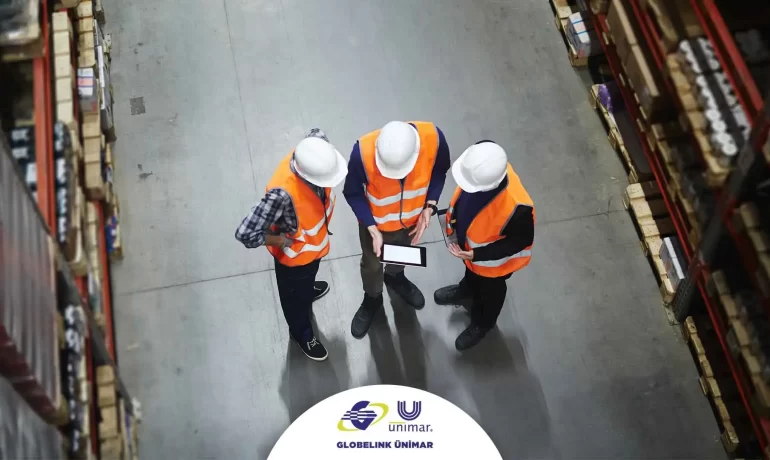
- January 25, 2021
- Blog
E-export, which is a new turning point in world trade, enables the reshaping of global trade. The main way to stay competitive in this economic gain is quality, speed, and confidence in the triangle of delivery, payment and logistics.
Many countries have started to expand the usage area of e-export, which has become a very common term in the recent situation where the world and our country’s economy have come. The fact that online shopping can be done quickly and safely by the users and the factors that increase the “customer satisfaction” offered by the companies guarantee that e-export will be one of the most important economic moves in the coming period. Especially, with the support and incentive packages offered by the states, online exports have enabled not only large companies but also SMEs to review their economic road maps.
E-export, which offers advantages such as low investment costs compared to traditional exports, minimum risk level, and not damaging thousands of products due to a problem in the containers, also provides advantages like easier access to target markets and market analysis in detail.
Globelink Ünimar Strategy and Business Development Manager Mr. Uygar Sül, who states that e-commerce is a commercial transformation point, says: “The one thing to remember is that the growth figures of % 25- 30% (CAGR) mentioned in Turkey and in the world do not change commercial volume increase but consumer consumption patterns into an electronic/digital side from the conventional method very rapidly. At this point, e-export and e-import gain importance. As we can easily say, Internet-based shopping has rapidly increased international product circulation.”
According to KPMG Turkey’s latest research, the market value of e-export is expected to rise to $ 3.4 trillion in 2020. The E-export consumer population is expected to reach 2 billion by the end of this year; this corresponds to approximately 30 percent of the world’s population.
According to the Turkey Union of Chambers and Commodity Exchanges (TOBB), there was a great increase in e-export turnover in 2019. 2020 is expected to be the golden year for the online commerce industry. While it is stated that the Turkish e-commerce industry grew at a rate of 30-35 percent, it is stated that the market size exceeded 60 billion pounds and the sales volume worldwide will reach $ 4 trillion.
E-Export Forces Logistics Operations to Change
Due to the increasing popularity of e-export day by day and due to the fact that it has expanded in terms of both firms and customers and with the understanding that this will be the new order, almost all of the sectors have started to make updates to be included in this process. Digitalization is especially important in delivery, payment, and logistics. Overseas deliveries are not a process that can be managed by traditional methods; a logistics company is not only a delivery company within this system, but it also reaches a partner position that produces integrated solutions with the sending company. For this reason, the presence of both an e-export infrastructure and an experienced logistics company has an important place in online exports.
E-commerce is a market with fast delivery, high quality, reliability, and customer satisfaction. To do this correctly, delivery speed and quality are critical; the contrary situation weakens competitiveness. Stating that commercial activities force logistics operations to change, Mr. Uygar Sül says that product tracking and speed are the most important tools of change in logistics at this point: “New products, new distribution and marketing techniques, new “consumer satisfaction” concept, new intermediaries, and new labor profiles are among the leading changes brought by e-commerce.”
On the other hand, Mr. Uygar Sül says that the process in e-commerce does not only end with delivery to the end consumer. He states that the logistic process, which starts with the company taking the order and continues with the delivery of the product to the customer, must be set up correctly, including the return of the product. He underlines that otherwise, additional costs will negatively affect both the logistics company and the manufacturer will occur.
Turkey’s Fast Delivery Attack in E-export
Turkey, which has been experiencing economically tough years recently due to the increase in the Exchange rate in recent years, risks in neighboring countries, political developments and contraction in the global market, is looking for solutions in improving e-commerce and interest in e-exports. Turkey’s e-export share in total exports around 0.5 percent for the moment, but by 2023 this share is expected to reach 5 percent. In particular, the most important trump card of Turkey, which is in the pursuit of growth in overseas e-export, is its logistics location. It is stated that Turkey, which is located on the connection roads of Europe, Asia and Africa, will be one of the most important exporters of the world with its logistics power.
UTIKAD, the leading organization of the Turkish logistics industry, is conducting activities for the establishment of logistics centers abroad to enable Turkish companies to come to the fore in terms of logistics, the largest element of competition in e-export, and for fast product delivery from these warehouses. Turkey is trying to create free trade zones in this context and to increase the number of these. In these regions, important advantages are provided for overseas e-commerce such as tax advantages, customs inspection processes, the establishment of companies, flexible legislation for foreign companies, and the return of capital and profit to the investor’s country.
On the other hand, Turkey reveals its logistics base advantage, which it has thanks to its position at the center of Asia- Europe trade routes, with the increase in the volume of e-commerce. Besides, there are also points out that Turkey still has to overcome in e-commerce and e-export logistics. Low-priced competition among cargo companies is one of the main points that Globelink Ünimar Strategy and Business Development Manager Mr. Uygar Sül draws attention to. Pointing out that this situation decreases the service quality, Mr. Sül emphasizes that product returns create extra shipping costs and says the following about the solution: “The establishment of companies that produce solutions for regions where the Cargo infrastructure cannot provide adequate service quality and the fact that SMEs have more information about the logistics process applied in e-commerce will help to solve the problems experienced in domestic e-commerce logistics. As it is known, the biggest problems are experienced in delivery to the end-user, called “last mile”, and “Omni-channel” multichannel action-taking activities.”
Mr. Sül, who points out the problems in overseas e-export logistics, says: “Apart from the lack of permanent specialist staff in the customs and problems experienced in exits and returns with ETGB, practices in operational processes, warehousing and storage fees, payment of universal postage participation share by more than one company for the same shipment, and expenses from taxes increase logistics costs and prevent e-exports from reaching the targeted levels. With many applications and incentives released in the second quarter of 2019, these problems have been gradually prevented.
Unfortunately, data regarding the products exported after e-export, i.e online shopping, cannot be provided clearly (product price, kg, volume, etc.). I am sure that in this period it will be dealt with more extensively.”
“We Have Started to Implement Blockchain Opportunities”
As Globelink Ünimar, we have started to take the necessary actions in overseas e-commerce logistics services. We have completed the implementation of ETGB (Electronic Trade Customs Declaration) in order to carry out B2B and B2C cargo delivery processes in the shortest time and without any problem, especially on the e-export side.
In addition, as Globelink Ünimar, we have accelerated our investment storage services, international transportation, air cargo operations and micro-distribution within the scope of integrated logistics services that are part of our long-term strategic plan and our digital transformation projects, in which our business partners are involved.
Delivery track (track & trace), creating online offers via the web page, e-bill of lading (e-AWB) and also blockchain opportunities that can be used in the field of e-logistics are among the activities we have started and are planning.
Artificial Intelligence is Both Changing and Transforming
Today, we can see the clues that we will
The Future of the Cargo Market is Shaped by e-commerce
The e-commerce industry has been growing rapidly since the



